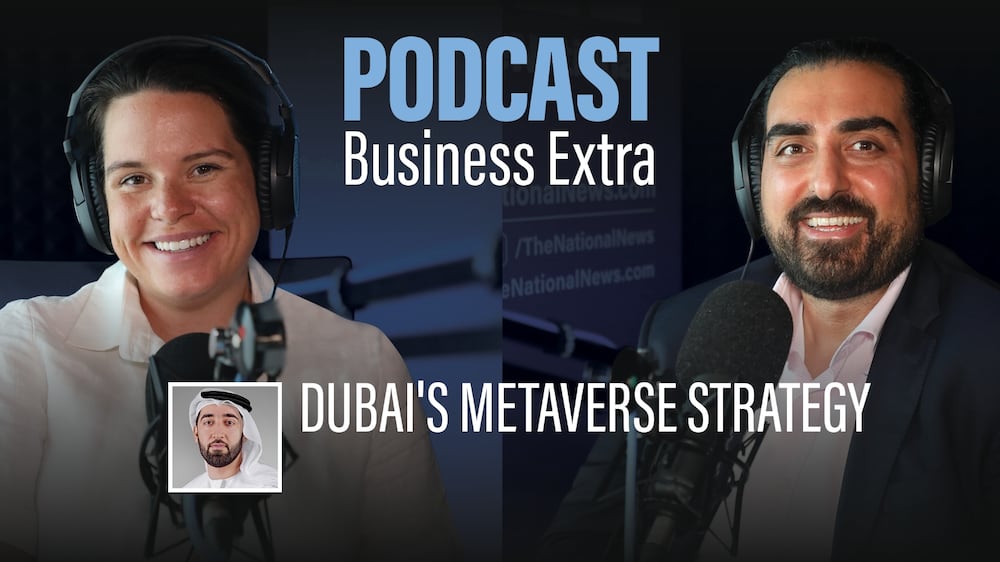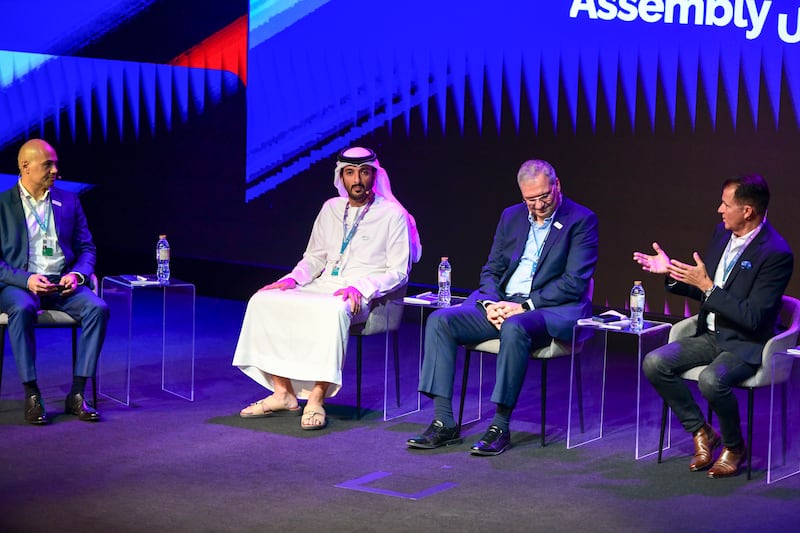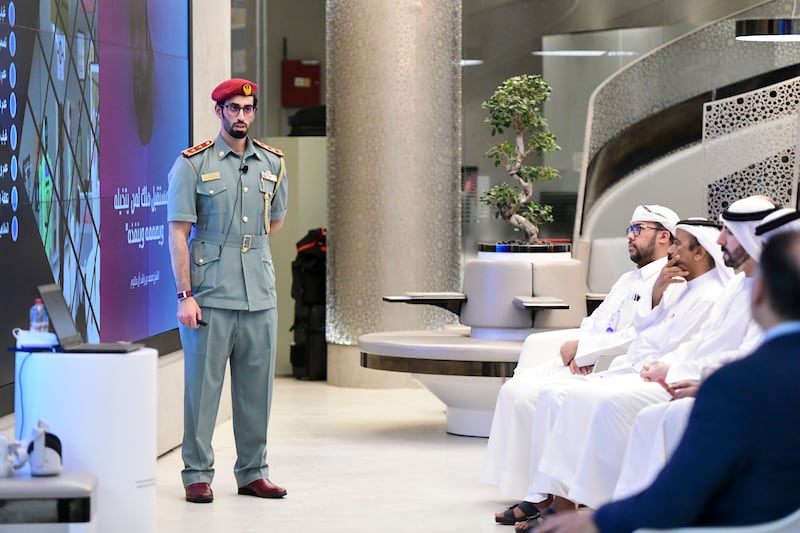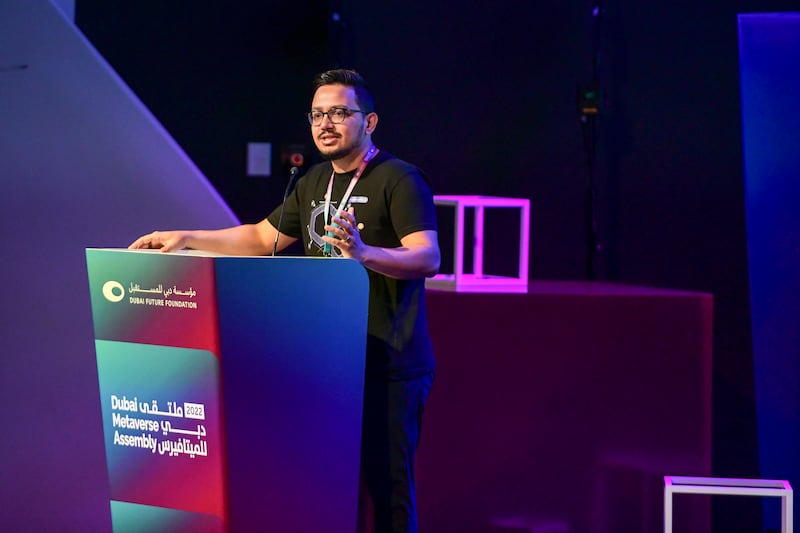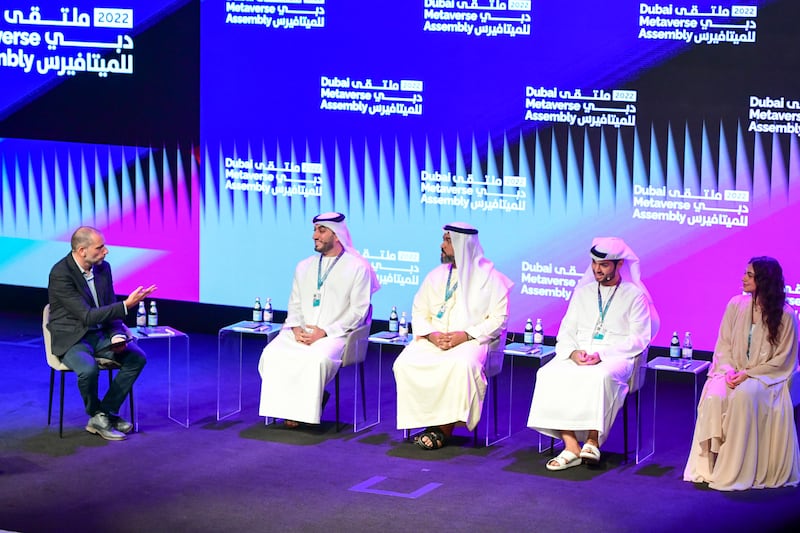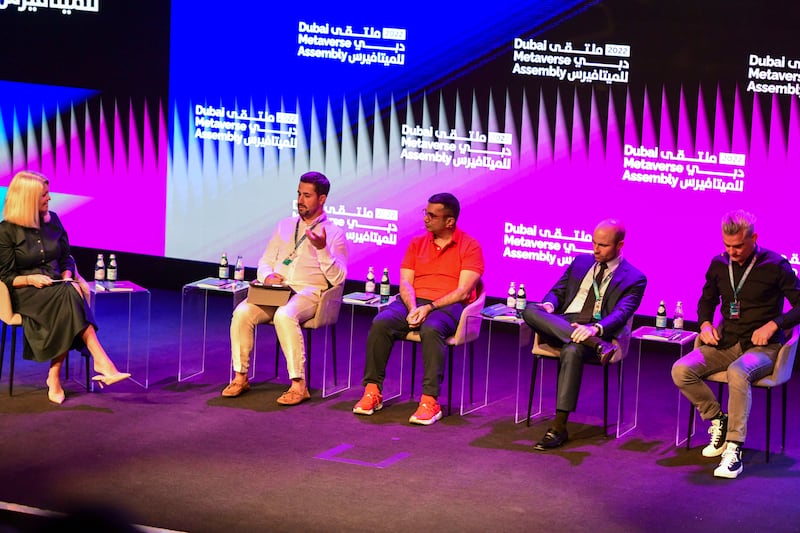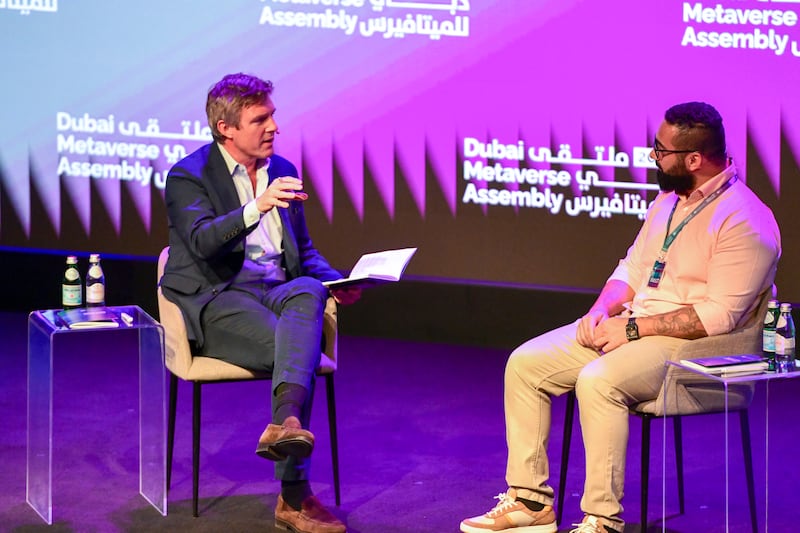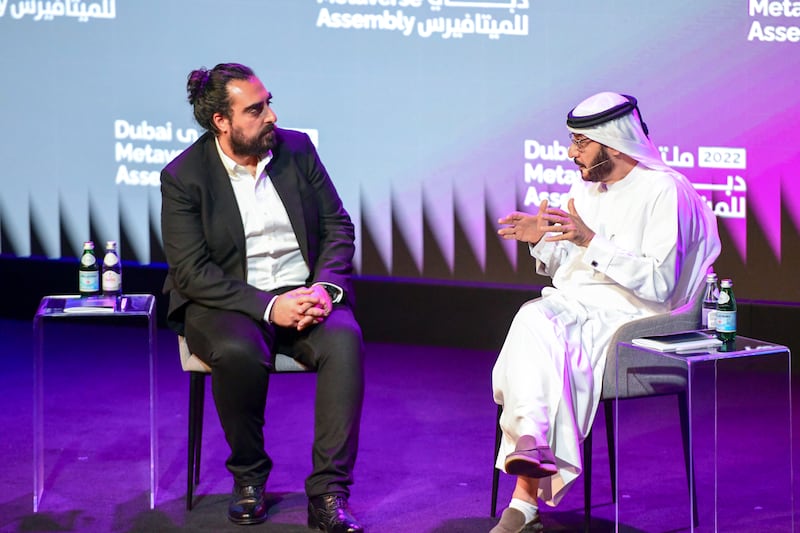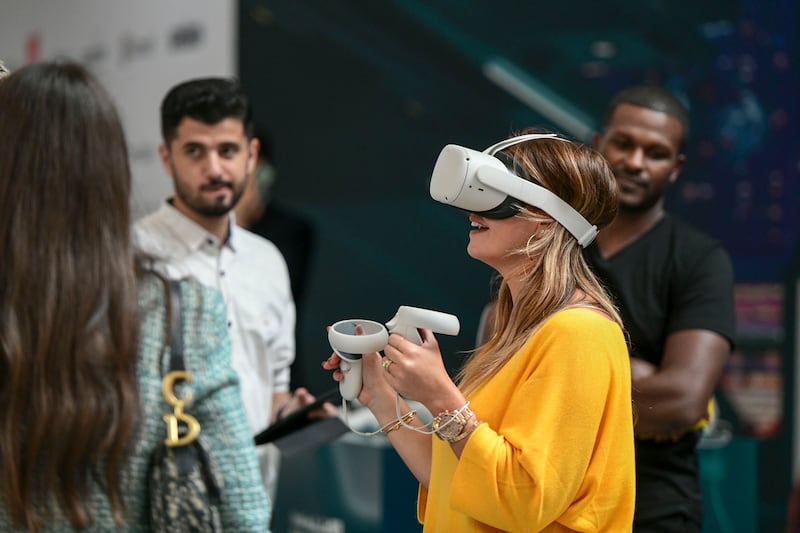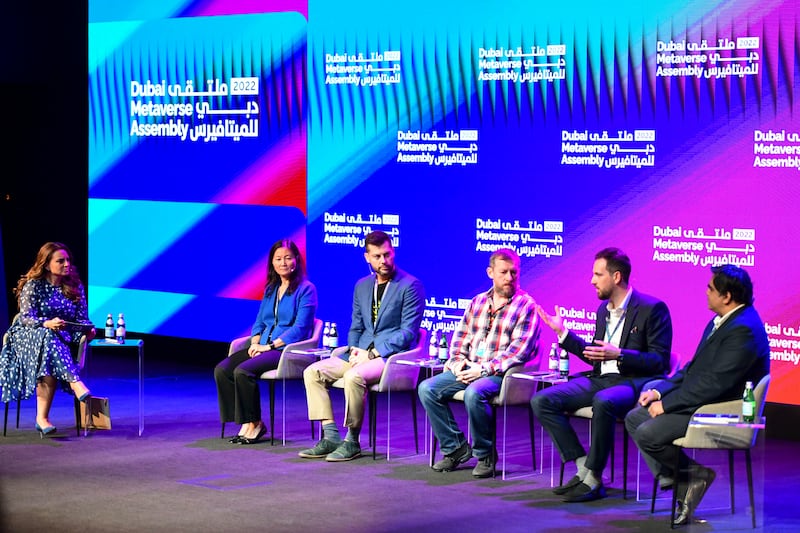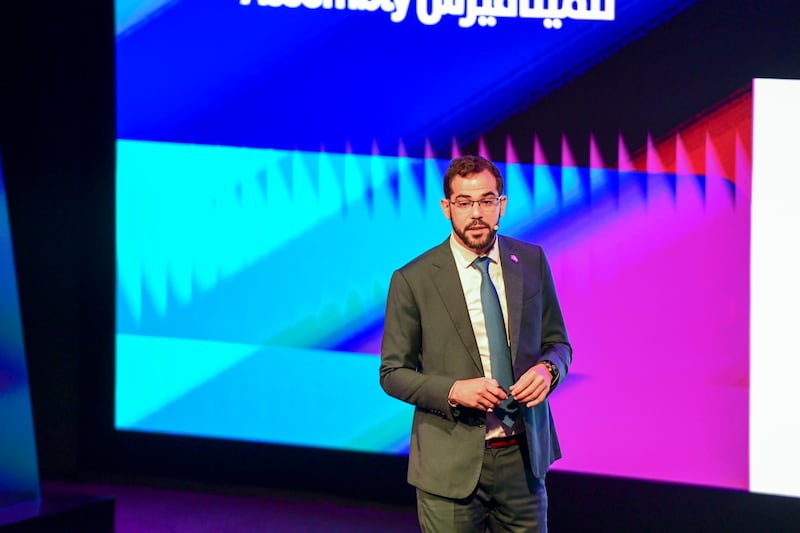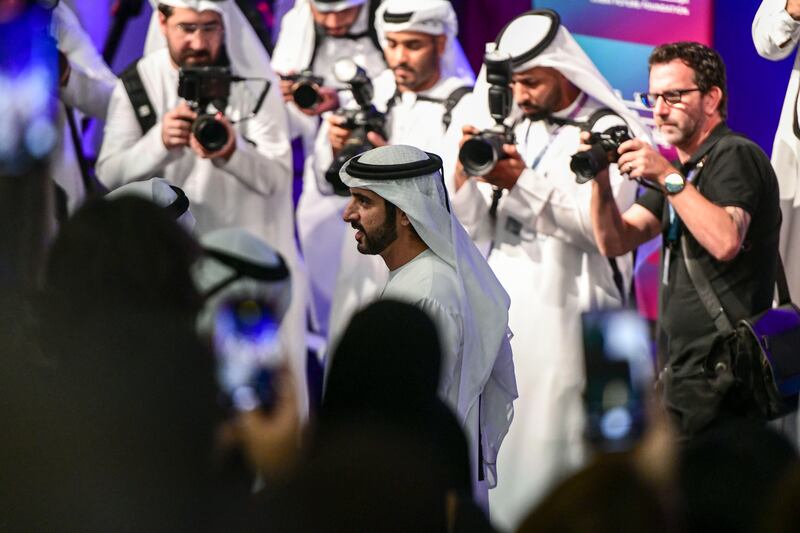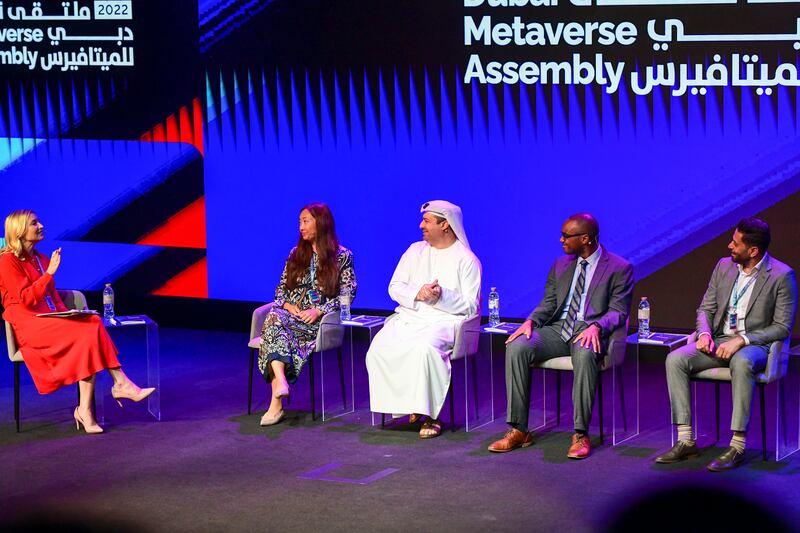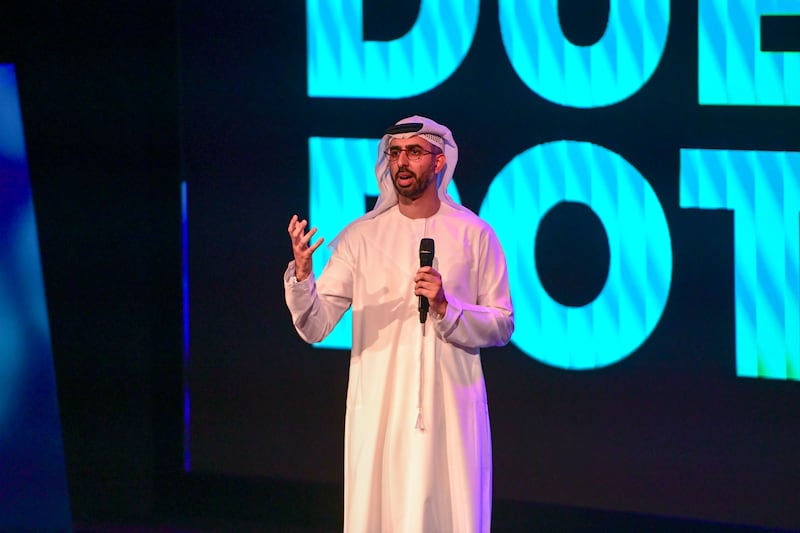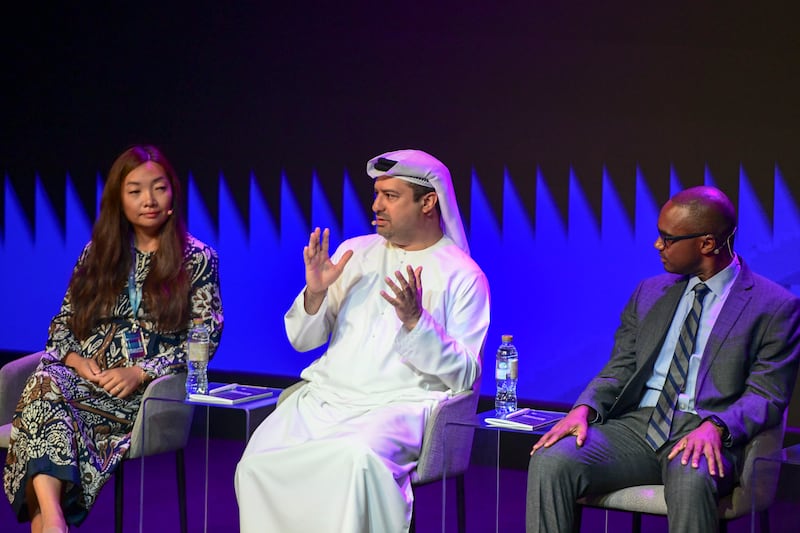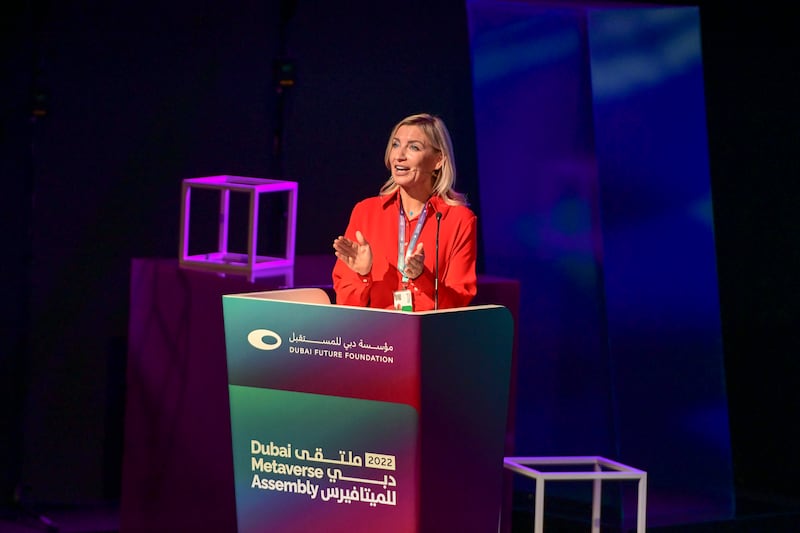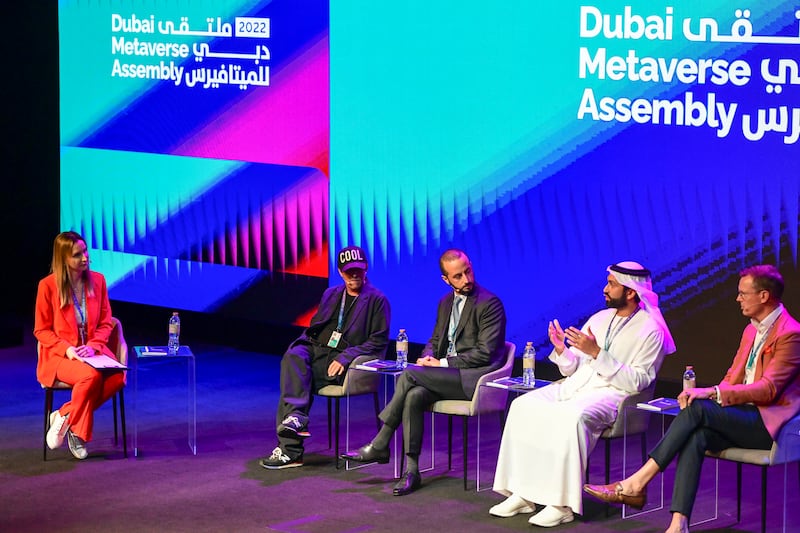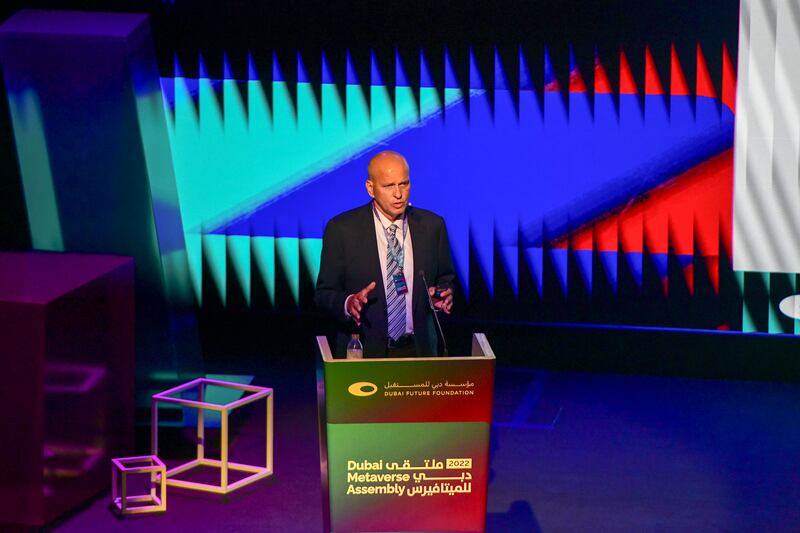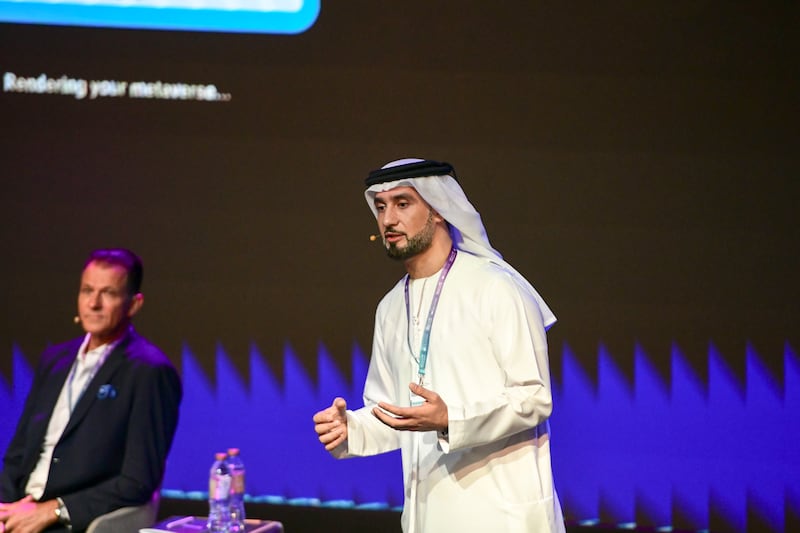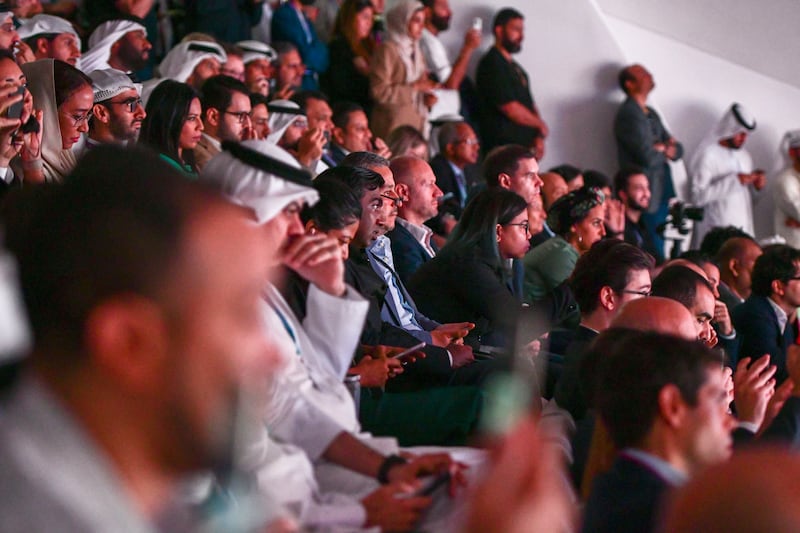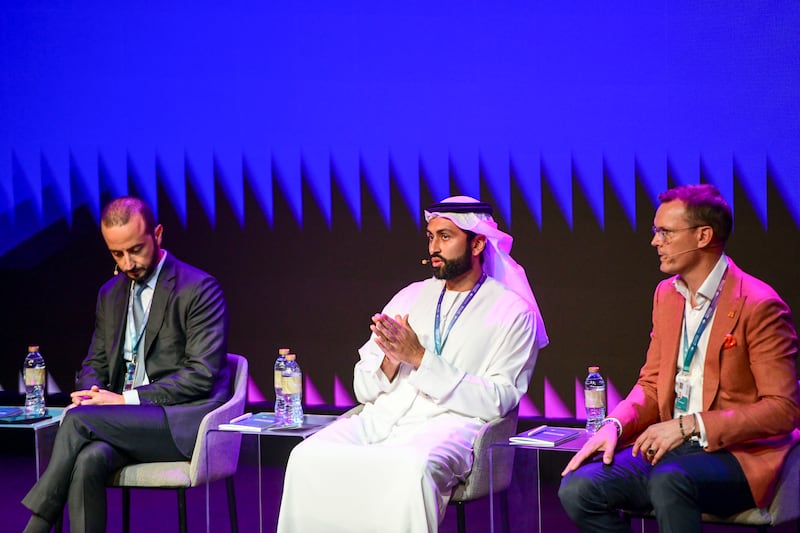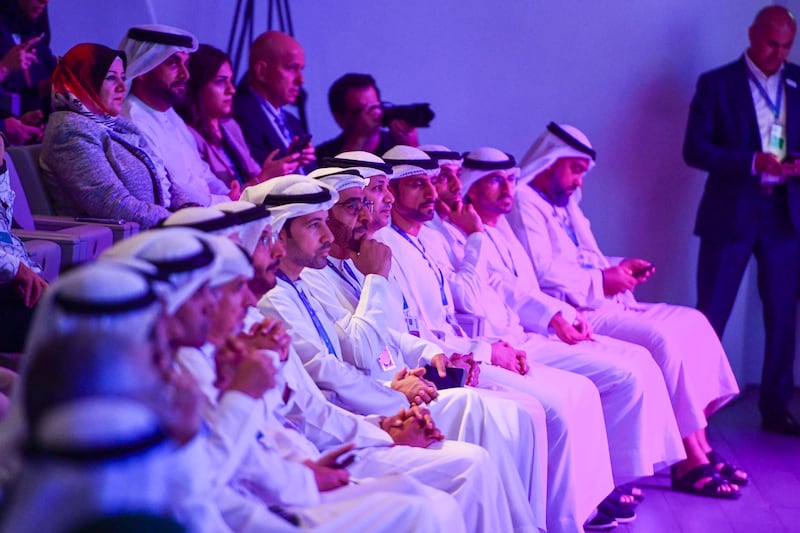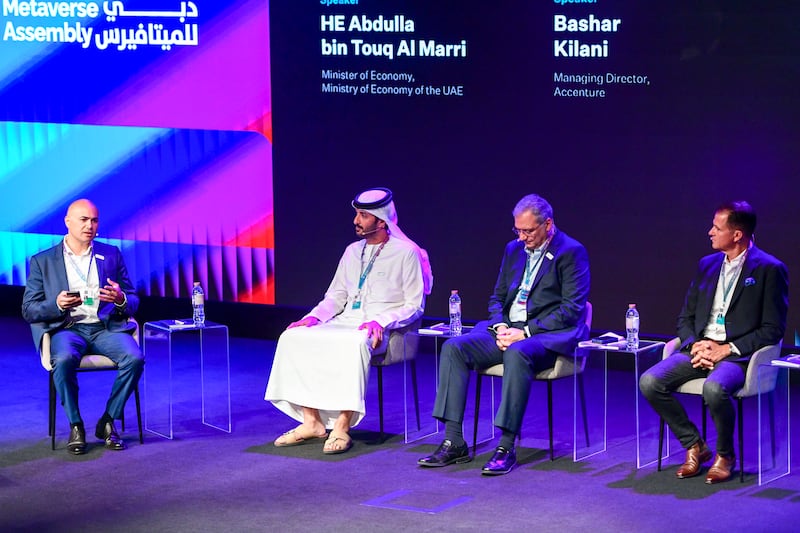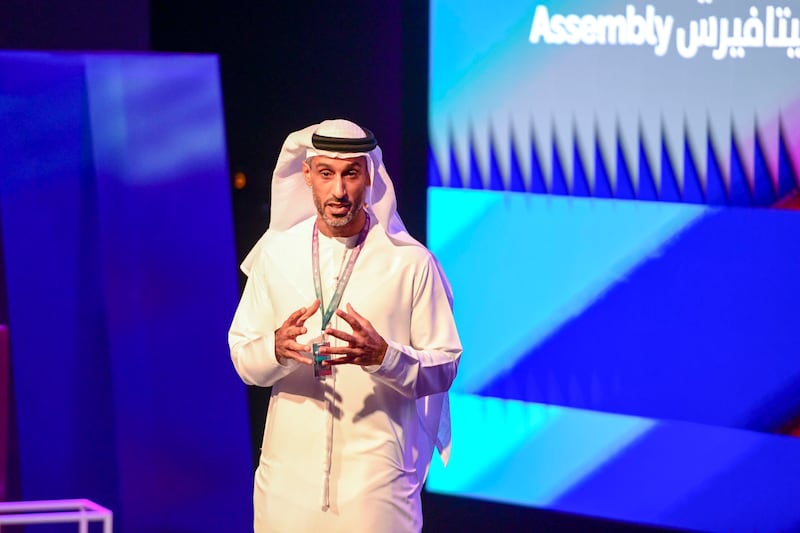Governments have the responsibility to take the lead in developing the metaverse, and countries providing the right infrastructure and legislation will spearhead the transition, UAE officials said at the Dubai Metaverse Assembly.
An influx of investments into the metaverse is also expected to help make the technology more economical, lowering the barriers of entry and providing an environment for everyone to participate in, according to industry leaders at Wednesday's event.
“The UAE's economy, throughout the decades, has always been built upon technologies and innovations,” Abdulla bin Touq, Minister of Economy, said.
“That's really what brings us where we are today, why we're taking this leap to a new phase of technology … we've moved from a sea port to an airport and today, where we are is like a brain port,” he said, in reference to the virtual nature of the metaverse.
The metaverse is the emerging space where people, represented by avatars or three-dimensional representations, can interact in virtual worlds.
It is part of Web3, the next evolutionary step of the internet, with blockchain, decentralisation, openness and greater user utility among its core components.
The UAE has taken a number of steps to integrate the metaverse and its related technology, including cryptocurrencies, into the economy, government and society.
In July, the government unveiled the Dubai Metaverse Strategy, which aims to create 40,000 jobs and add $4 billion to the emirate's economy over the next five years.
In May, Dubai's Virtual Assets Regulatory Authority established its Metaverse HQ, making it the first regulator to have a presence there.
The metaverse is an economic opportunity worth between $8 trillion and $13tn, heavily dependent on how much companies are willing to invest in the emerging innovation, said consultancy PwC.
Discussions on the metaverse are among “the most important dialogues of the Fourth Industrial Revolution [4IR]", Khalfan Belhoul, chief executive of the Dubai Future Foundation, said at the event.
Boosting the adoption of advanced 4IR technologies, especially in sectors such as manufacturing, is among the central planks of the UAE's economic diversification strategy. Both Abu Dhabi and Dubai have unveiled multi-billion dollar strategies to achieve this goal.
The UAE's economic transformation has always relied on making “big bets” in adopting innovation, and it has translated into success, Mr bin Touq said.
“This does not mean we didn't make mistakes or learn many things along the way, but we leveraged the success stories and took them to the next level to set an example as a nation,” he said.
The growing number of companies ramping up their investments in the metaverse will also allow the technology to become inclusive and not only reserved for those with the financial means, said Mark Zaleski, managing director and partner at BCG Digital Ventures.
“The vast majority of businesses can be successful in the metaverse. It’s a lot less expensive, but not necessarily cheap, and those that wait will lose this time around, because it will evolve so quickly,” he said.
“The more people engage in the metaverse, the lower the barrier for entry and costs. It won’t be just for the wealthy and will allow everyone else to afford to be in it — and this is an overlooked aspect of the metaverse.”
The UAE is considered to be a leader in promoting the metaverse, having the “energy” that Silicon Valley had 25 years ago, Mr Zaleski said.
The Emirates' strengths include enablers such as digital ID systems, virtual payments, online services and its robust laws, in addition to measures to ensure cyber security, said Bashar Kilani, managing director of consultancy Accenture.
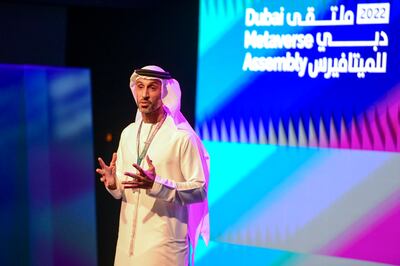
Mr Belhoul, however, also warned of the adverse effects of new technologies, particularly on the younger generation.
Physical interactions “are at risk. We see our kids and our younger siblings literally glued to the screens. And we haven't even scratched the surface of the metaverse”, he said.
“Those are serious challenges that we really need to think about because we haven't really discussed what is going to happen in such an immersive digital world.”
The reality is that the future of economies will depend on these technologies and how governments align their strategies with them, Mr Belhoul said.
“I'm not here to scare you; I'm here to tell you there is a lot of opportunity,” he said.
Dubai's metaverse strategy
